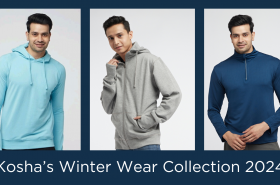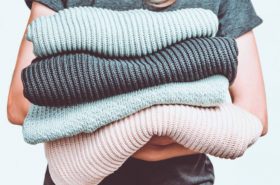
Is your next winter trip planned to an exciting destination like the Swiss Alps, with some skiing and snowboarding among other things? Then its time for you to layer up for your winter wardrobe. But you need not bundle up in bulky knitwear, just get the perfect mid-layer and you will be good to go. Here’s how.
Get Cozy with a Mid-Layer
The type of clothing you wear on top of your base layer decides the level of comfort you may enjoy at your dream destination. A mid-layer is the one providing that additional amount of insulation when you are at a chilly destination. With fluctuations in temperature and weather conditions from a crisp morning to balmy noon to a chilly evening, you can layer up or easily peel out with the right kind of lightweight mid-layers.
There are different types of mid-layer clothing a woman can wear, such as a lightweight woollen sweater, a fleece hoodie or a sweatshirt. A classic turtle neck pullover to works like a charm And you can always mix and match styles depending on whether you are dressing for an adventurous outdoorsy trip or even a leisurely walk in the city.
Your mid-layer should be a little loose-fitting and create a sort of micro-climate between the two layers containing insulating air. This very gap also helps to facilitate moisture transfer from the air outside, hence serving the purpose of ventilation. So, as long as your mid-layer fabric does not hold the moisture and is able to wick it, you should remain warm enough.
Another thing to make sure is that the mid-layer garment should be fit to your measurement. Too long and it’s going to peep out of the outer layer collecting all kinds of things including snow, dirt etc. Too small and you’ll end up with exposed skin, which is not comforting in cold weather conditions.
Choose the Right Fabric
The ideal fabric for your mid-layer should comply with some of the most important insulation parameters which include breathability, weight and the ability to transfer moisture.
Wool: This is the traditional material for a mid-layer, and is still widely used around the world. The air circulation tends to work well within it and it transfers the moisture rather nicely. The insulating character of wool is of a high order, but it’s not windproof enough compared to many other materials. If you are worried about the itchy texture of the regular wool, then go for the Merino wool instead. You could inquire about wool thread count which determines whether the woollen fabric or knit is itchy or not. Generally, a fabric which is between 17- 21micron is fine even for sensitive, baby skin.
Down: Apart from having an average warmth to weight ratio, down-filled mid-layer displays a quality far better than anything else, which is its density. With the same level of warmth provided by wool, a garment made out of down (duck feather) would be thinner and could be easily packed in in your travelling backpack. But once down gets wet it is very tough to dry it out again so make sure you take good care to keep it away from moisture. Also, most garments with down feathers come with a blend of polyester, the higher the percentage of down – more expensive the garment, so remember to see the label before you decide to buy.
Fleece: The term fleece is used for incorporation of synthetic material in a mid-layer garment which in most cases consists of polyester fibre. Polyester is not known to fare well in terms of warmth to weight ratio, although it’s less expensive than down or the wool. It dries quickly compared to others and efficiently wicks the moisture. The warmth you can pack within the fabric should increase along with better thickness. The garment made from spun polyester fibres should provide a good amount of breathability.
Other materials, such as nylon, cotton and more recently softshells, are available with varying degree of insulation, moisture interactivity and breathability. However, they still hold little water when compared to materials, such as wool, fleece and down.
Making the Final Choice
If you have already decided upon the material to go for, the final buying decision would depend on the different features you get with the mid-layer. For example, a vest with interior pockets would be great to keep a few important things protected with you. Hoods are convenient too, as they should protect your head in those windy times. Going for a zipper instead of a button could be a personal preference, although the choice of selecting between the two can be eluded by buying a sweater or a sweatshirt.




